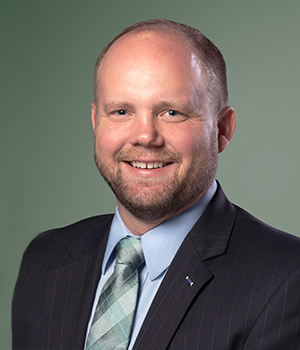Understanding Estate Planning
At O’Keeffe O’Brien Lyson Attorneys, we believe that helping to educate individuals and families about the complexities and importance of estate planning will help them in creating the best plan to assure their wishes are properly carried out when the time comes. Please read this section. It will likely generate more questions than answers. Make notes on your questions, then contact us for an initial consultation. Our Estate Planning team will help you decide how to move forward in developing the right plan for you and your family. Send us a note on the contact form or call 701-235-8000.
A Will is Not Enough
People want to do the right thing for themselves and their families. But, all too often, their good intentions have tragic results. The sad part is that not understanding all the details of probate and a correctly prepared Estate Plan often bring complicated, drawn-out probate processes when the loved one dies. If they had just known what could happen, chances are they would have done things differently. A will alone is usually not what will best serve the decedents’ wishes or the family left behind.
Contrary to what you’ve probably heard, a will may not be the best plan for you and your family. That’s primarily because a will does not avoid probate when you die. All wills—including those with trusts in them—must be admitted to the probate court before they can go into effect. Also, a will provides no protection if you become physically or mentally incapacitated. And it probably doesn’t give you the control you think it does if you have minor children or grandchildren.
Considerations and Frequently Asked Questions
- What is a Power of Attorney?
- What is a Revocable Trust?
- What is probate?
- Why do we have to go through probate?
- What’s bad about probate?
- How long does probate take?
- Who gets most of the money?
- What if I’m incapacitated?
- Wouldn’t a Power of Attorney prevent the control of assets having capacity?
- I don’t own much. Why should I be concerned about probate?
- Why would the court be involved if I have a will?
- Losing control by doing nothing
- Losing control with joint ownership
- Losing control by giving away assets
- Losing control with beneficiary transfers
- Keeping control with a revocable living trust
- What is a revocable living trust?
- When should I set up a living trust?
- Do I need a will if I have a trust?
- What are the limits of a Power of Attorney?
- Is a Healthcare Directive the same as a Power of Attorney?
- What about minor children and grandchildren?
- How can a Trust help?
- What about joint ownership?
- When will my beneficiaries receive their inheritances?
- How do I control the distribution of assets to/for children?
- What about inheritance/estate tax?
What Should You Do?
As you can see, there are many points listed here, plus there are likely more questions that may apply in your personal situation. There are personal considerations, various legal questions and potential outcomes that should be discussed before developing an estate plan that will accomplish your goals. The best advice we can give you at this point is to contact us for an initial conversation. Email or call Brandon Erickson, Estate Planning lead attorney at 701-235-8000 or toll-free 877-235-8002.
To discuss an estate plan, contact experienced estate planning attorney Brandon Erickson at O’Keeffe O’Brien Lyson Attorneys in Fargo at
701-235-8000
or
877-235-8002
Contact Us Today
Professional Memberships



